Graham Reid | | 4 min read
The Folkes Brothers: Oh Carolina (1960)
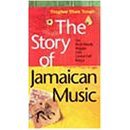
One of the most exciting things about popular music is that you can never anticipate where the next wave will come from.
Could you have predicted Chicago in Forties, Memphis in the Fifties, Hamburg and Liverpool clubs in the Sixties, Berlin or the Bronx in the Seventies and early Eighties? Or Seattle, Havana, the deserts of the sub-Sahara . . .
You could have?
Great, a couple of major record companies would really like to hear from you right now.
If there is a pattern to these waves of influence then it is probably impoverishment.
From Chicago blues clubs, Elvis driving his truck, the Liverpool of the Beatles through to London’s Sex Pistols, Cuban musicians scuffing out a living and the nomadic desert people delivering their African blues, we aren’t talking about the cellphone and the let’s-do-lunch sanitised world.
Nope, it was grubby out there and until Bob Marley’s breakthrough could you imagine how many A&R record company people were sitting around the big desk in the boardroom saying, “Yeah, Jamaica’s Trenchtown. Forget about the guns and guys with razor knives, let’s just go have a look!”
None would be my guess. No journalists or critics either probably.
Yet the sheer number of artists who have emerged out of the tiny island of Jamaica over the past four decades has been without equal in the largely manufactured world of rock.
(Rock is the operative word here. Rock people are hardly flocking to Bangkok or Seoul to find out what is happening there either.)
Attention given to the great Bob Marley allowed equally significant artists to fall into the public spotlight in his wake. We’d be a lot poorer for not knowing the music of Burning Spear, the Congos, Kiddus I, Gregory Isaacs, Linton Kwesi Johnson and Steel Pulse from Britain, Black Uhuru, Yellowman, U Roy and I Roy . . .
And that’s only the reggae connection, a sound which became universal (Herbs, Tigi Ness, Dread Beat and Blood, Aotearoa and others in New Zealand up to Katchafire and Ruia in the 21st century.)
But before reggae in the Seventies there was ska and rock steady in Jamaica. And post-Marley there has been dancehall, ragga and other styles. Then there is dub -- that smoke-inspired x-ray studio strip-back of reggae music -- and toasting (pre-rap talk-sing). And of course pop-reggae.
All that from an island the size of the top half of the North Island of New Zealand and from a population of fewer than three million?
Try getting that diversity of music -- let alone account for the political, religious and social aspects -- together in your head. Or worse, into a box set that appeases all those competing agendas and attempts an overview of 35 years of Jamaican music.
Well, in 1994 Steve Barrow did -- and did it magnificently for Tougher Than Tough/The Story of Jamaican Music, a four-disc collection which opens with the original Prince Buster-penned Oh Carolina from 1960 by the Folkes Brothers and closes a majestic, sweeping four and half hours later with Shaggy’s early Nineties chart-topping version of the same classic.
From repeater-drums to techno-flick, the song remains the same. But different.
It is a helluva journey that Barrow charts, and if it can’t entirely accommodate dub style and pulls Brother Bob back to only two cuts (his seminal rude-boy breakthrough Simmer Down and a live version of No Woman No Cry) that hardly matters: dub is it’s own discovery -- it means willingly embracing a consciousness slip -- and Bob Marley got his own superb Songs of Freedom box set.
Despite the paring back, here are 93 tracks from the wayward forms of soulful, stoned, righteous and religious genius that Jamaica encompasses.
You don’t envy compiler Barrow. Which Burning Spear to include from his double-whammy of genius, the Slavery Days or Social Living albums? (He goes for Marcus Garvey, that’s a good choice). Which Max Romeo track? Uptown Babies or Chase the Devil? (He goes for the sexy ooze of Wet Dream. Hmmm. And War inna Babylon. Definitely.)
Choices are down to personal taste and despite no Bunny Wailer (Blackheart Man or Armagideon really should have been here), no Gladiators or solo Peter Tosh (Stepping Razor, surely?), on balance you’d have to say Barrow got the mix right within the constraints of such a set .(A limited edition, only 100,00 copies apparently)
Barrow spots in crucial material: The Upsetters Return of Django, Dave and Ansell Collins’ Double Barrel and Delroy Wilson’s Better Must Come from the early years, for example).
They sit alongside tracks which give breadth and texture: Teach the Children by Dennis Alcapone, Jacob Miller’s Tenement Yard and Sugar Minott out of the pop corner with River Jordan.
The collection shows a keen, sympathetic intelligence at work: Jimmy Cliff’s written-to-order Miss Jamaica, the Skatalites’ Guns of Navarone, Millie Small‘s UK breakout hit My Boy Lollipop . . .
Only that classic reggae period from the early Seventies through to the dancehall style a decade later seems a little cramped by the constraint of a single disc among the four entitled separately Forward March (1958-67), Reggae Hit The Town ((12968-74), Natty Sing Hit Songs (1975-81) and Dance Hall Good to We (1982-93).
Even so on the third magnificent disc are Junior Murvin’s Police and Thieves (which the Clash covered), Culture’s premature announcement of the apocalypse on Two Sevens Clash, Black Uhuru’s Guess Who’s Coming to Dinner (a pity perhaps that there wasn’t room for World is Africa or Leaving to Zion) and Dennis Brown’s Sitting and Watching.
The final disc wraps up Yellowman, Barrington Levy, Half Pint, Shabba Ranks, Chaka Demus and Pliers, Buju Banton . . . All of whom carried the project of Jamaican forward in their distinctive manner.
Jamaican music -- musics plural, perhaps? -- was one of the great stories of the 20th century: it is about post-colonialism and tradition, Ethiopianism into Rastafarianism, gun culture and ganja, sex and politics . . . all in some weird inter-related microcosm.
And when it hits, you feel no pain.

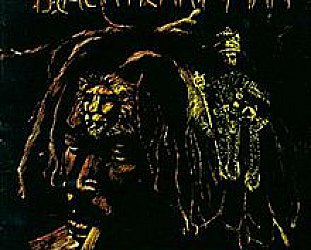
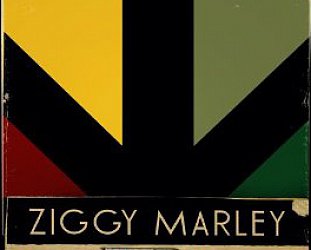
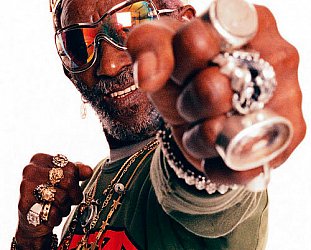
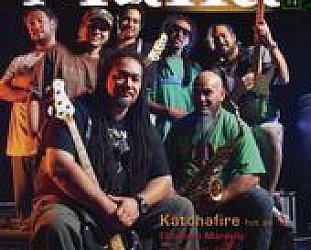
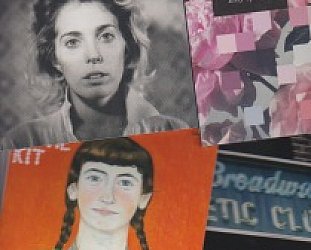
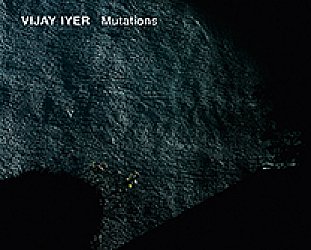
terri - May 18, 2009
What a fantastic reminder of the richenss of Ja music. Truly amazing the diversity and all the sub-genres within.
Savepost a comment